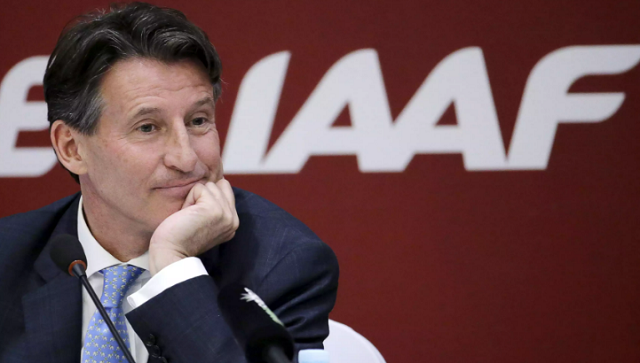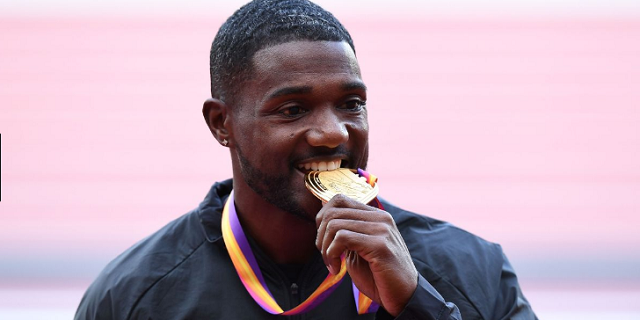
London, United Kingdom | AFP | Athletics chief Sebastian Coe and the IAAF’s treatment of controversial 100 metres world champion Justin Gatlin is ‘inhumane’ and ‘unsportsmanlike’, the athlete’s agent told the BBC in a blistering attack.
British athletics legend Coe — a two-time 1500m Olympic champion — had told the BBC on Sunday two-time drugs cheat Gatlin’s victory in the sport’s most high profile event in London, which was watched by over eight million viewers in Britain, was not the ‘perfect script’.
Gatlin, 35, had been loudly booed throughout the 100m rounds and the verbal abuse was ratcheted up a few notches when he won the final, denying Jamaican superstar Usain Bolt a 12th world title in his last individual final. The 60,000 plus spectators jeered Gatlin whilst chanting bronze medal winner Bolt’s name as if he were the champion.
Coe — who had said prior to being elected president of the International Association of Athletics Federations (IAAF) he felt ‘queasy’ about dopers returning and winning titles — remarked he wasn’t very excited about the prospect of placing the gold medal around Gatlin’s neck.
“I’m not eulogistic that someone who has served two bans has walked off with one of our glittering prizes,” said the 60-year-old.
However, Gatlin’s agent Renaldo Nehemiah, a former 110m hurdles world record holder, was scathing about Coe’s remarks.
“I take offence to, with all respect, Lord Coe,” he told the BBC.
“I don’t condone doping but Justin Gatlin is not the poster child for it.
“He’s done his time, he plays by the rules, the IAAF reinstated him. They said if you come back we should accept that.
“So to put a narrative out that it’s just Justin Gatlin and he’s the bad guy, it’s really not fair.
“It’s inhumane. It’s unsportsmanlike.”

– ‘The legend is OK with it’ –
Nehemiah, who won the 1984 Super Bowl with the San Francisco 49ers, said Coe and the IAAF should be more gracious and accept their rules allowed athletes like Gatlin to get a chance at redeeming themselves.
“Lord Coe’s a part of the IAAF who set the rules, who set out the punishments, and when you serve the punishment you are supposed to be reinstated, which these athletes who have offended and abused some of these rules have, and if you don’t want them in you should change the rules,” said Nehemiah.
“You don’t allow them in and then still condemn them,” said the 58-year-old.
Coe has always been a hardliner on doping, believing second time offenders like Gatlin should have life bans — however that view has fallen foul of the legal system when athletes have gone to court to challenge such punishments.
Gatlin — who reacted to the crowd’s booing of his victory by placing a finger to his mouth — served a four-year ban from 2006-10, reduced from eight years and also served a prior ban whilst a student, although that was also reduced as it was ascertained that he had taken medication for his Attention Deficit Disorder (ADD).
Nehemiah, who missed out on his chance of an Olympics due to the US boycott of the 1980 Games in Moscow over the invasion of Afghanistan, said if Bolt could accept graciously that Gatlin was justified in being there, then it should be good enough for anybody.
“If it’s good for Bolt it should be good enough for everyone else,” said Nehemiah, who observed that when Gatlin competed and won bronze at the 2012 Olympics in London he was not booed.
“If the king, the legend is OK with it we should all be OK with it.”
 The Independent Uganda: You get the Truth we Pay the Price
The Independent Uganda: You get the Truth we Pay the Price



